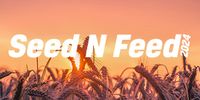A two-part Songwriting Workshop held at the Weyburn Public Library in March and April was just as rewarding for Dan Cugnet as it was for his participants. In fact, he said they are working on setting them up monthly beginning this fall.
Cugnet said two sessions doesn't give enough time to really work through the process, especially for those hoping for feedback from the group.
"Just to have a group of people that are interested in it, and it doesn't mean that somebody's got to be there every month, but just because all of our experiences are unique, and what we want out of it's all different too."
"It was a lot of fun, and I hope it turns into something a little bit more than just having two standalone workshops, because I really enjoyed it. It was something I never really kind of thought about and put pen to paper and I think you start to do this stuff, and there's a bit of that impostor syndrome sort of thing, right? It's like, 'well, I've never been to really a lot of songwriter workshops. I've have been part of some songwriter rounds. I think people's processes are different, but I think I know enough about music and different genres and structure and the different stories and basis of where stuff comes from."
He said while he knows he has some things to impart, he also has lots to learn, "let alone from other people that are out there doing it, but just from people in the community, and what they're working on and doing, what they're passionate about."
"It really just comes back to story," he noted. "Each one of us has our own individual story, and I think we diminish that sometimes, but it is really the everyday, and turning that into something that's unique and compelling, that is far more interesting, and it's relatable. What would you rather hear about, some lofty Roman gods or gossip from your hairdresser?"
"We tend to put, as people, our own barriers in front of us. It's like, well, why can't somebody just sit down and try and write a song? It can be very simple, and I think just attempting it a bit more, and in time that becomes just a practice thing."
Cugnet encouraged creators to put their creations out there.
"If it's painting a picture or writing a song, or whatever it is, and let other people enjoy it and celebrate it," he said, using the James Weir Peoples' Choice art exhibition as a prime example of that.
"I love every year just seeing what people come up with and what they do, and it's always so unique and so eclectic, and it's just an interesting thing. There are far more interesting people out there doing interesting things than we're aware of and it doesn't need to be somebody from 3,000 miles away. A lot of times it's somebody in the door down the hall, right around the corner."
He said putting oneself out there is the biggest hurdle, but for those who appreciate the creation, "it's like finding gold".
"It doesn't matter if you put it out there and you have 200 people that love it or two people that love it, or 2,000. I mean, if you're trying to make a career out of it, that becomes a little different thing. But if there are people who love what you're doing and enjoy it, how fantastic is that? When you think that people are actually giving their time to listening to something or reading something, or looking at something that you've created. The most important thing we have is time. To give that away to somebody else because we enjoy what they're doing, I mean, to me, there's nothing more validating than that, right?"
Cugnet added, "it's a fine line between the 'stop to smell the roses', but then approaching things with a sense of urgency. It's finding that balance, too. I guess that's the real trick of all of it is when you are going for a nice walk on a beautiful day and not be in a rush. But then at the same token, be like, okay, these are some of the things I want to do and this is the window I have to do it. That's the trick is finding that balance."
Referring to music producer Rick Rubin's message on making art for oneself, Cugnet shared that, "obviously you put it out there and you know and hopefully you hope that it creates some kind of an emotional connection with somebody, whether they like it, or love it, or not. It doesn't really matter. And he says 'I'm making it for me' and I think that's the thing that somebody really needs to take when they're doing anything. Don't make a movie or a story that you think the audience wants to hear because it's not going to land. Sometimes it might a bit, but it's much more different and much more fulfilling if you make something for yourself. Ultimately you're going to make something that other people should enjoy more, because you're not trying to make something for someone you think they're going to like."
"That's a really important approach, that I don't think is registering always, and hopefully people figure it out, that if they're trying to make something, whether it's writing a poem or a painting or writing a novel or a story or or a song or whatever. But at the end of the day, to me, it's make it for yourself, and then let the chips fall where they fall."













